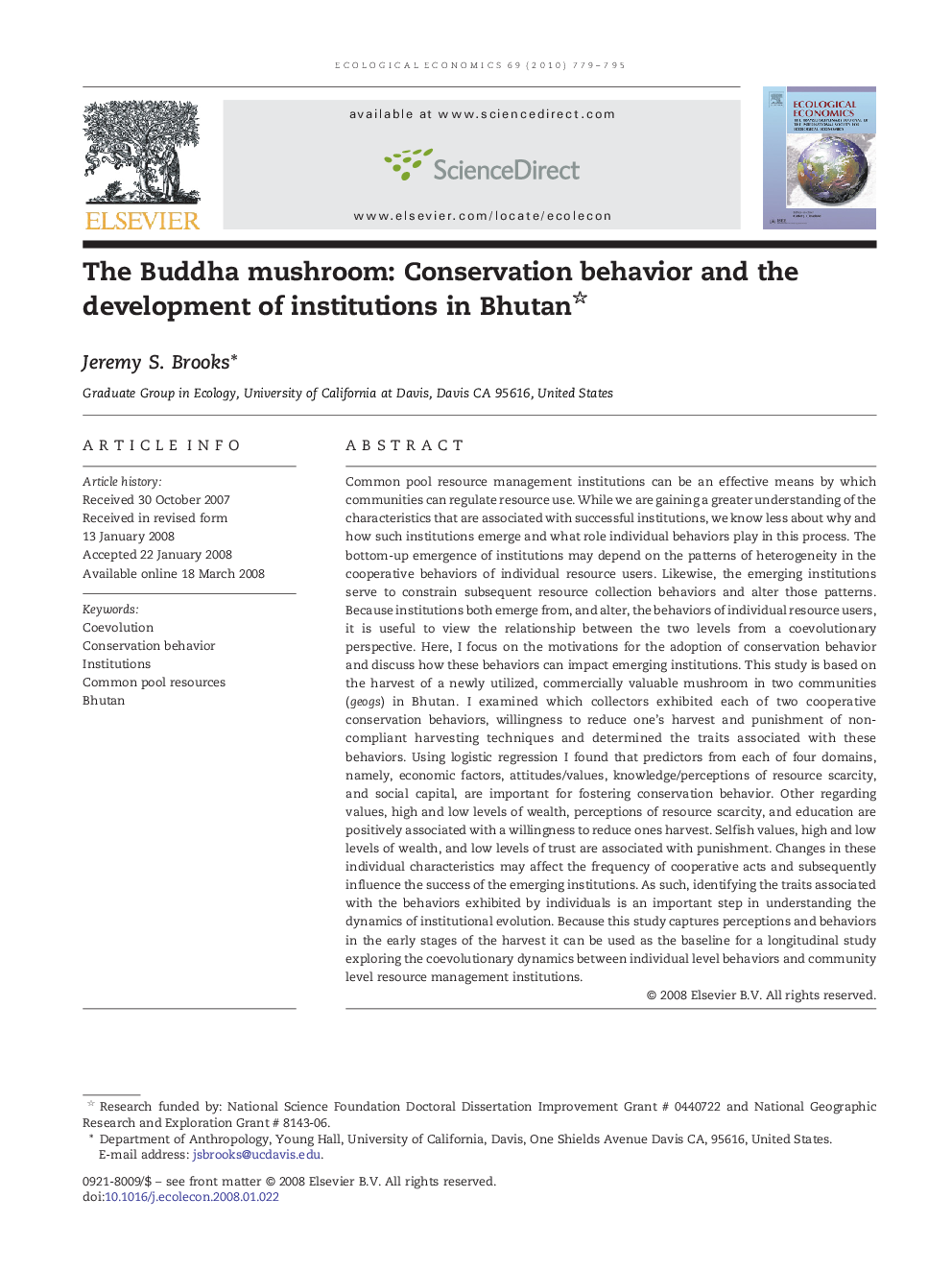| کد مقاله | کد نشریه | سال انتشار | مقاله انگلیسی | نسخه تمام متن |
|---|---|---|---|---|
| 5051094 | 1371112 | 2010 | 17 صفحه PDF | دانلود رایگان |

Common pool resource management institutions can be an effective means by which communities can regulate resource use. While we are gaining a greater understanding of the characteristics that are associated with successful institutions, we know less about why and how such institutions emerge and what role individual behaviors play in this process. The bottom-up emergence of institutions may depend on the patterns of heterogeneity in the cooperative behaviors of individual resource users. Likewise, the emerging institutions serve to constrain subsequent resource collection behaviors and alter those patterns. Because institutions both emerge from, and alter, the behaviors of individual resource users, it is useful to view the relationship between the two levels from a coevolutionary perspective. Here, I focus on the motivations for the adoption of conservation behavior and discuss how these behaviors can impact emerging institutions. This study is based on the harvest of a newly utilized, commercially valuable mushroom in two communities (geogs) in Bhutan. I examined which collectors exhibited each of two cooperative conservation behaviors, willingness to reduce one's harvest and punishment of non-compliant harvesting techniques and determined the traits associated with these behaviors. Using logistic regression I found that predictors from each of four domains, namely, economic factors, attitudes/values, knowledge/perceptions of resource scarcity, and social capital, are important for fostering conservation behavior. Other regarding values, high and low levels of wealth, perceptions of resource scarcity, and education are positively associated with a willingness to reduce ones harvest. Selfish values, high and low levels of wealth, and low levels of trust are associated with punishment. Changes in these individual characteristics may affect the frequency of cooperative acts and subsequently influence the success of the emerging institutions. As such, identifying the traits associated with the behaviors exhibited by individuals is an important step in understanding the dynamics of institutional evolution. Because this study captures perceptions and behaviors in the early stages of the harvest it can be used as the baseline for a longitudinal study exploring the coevolutionary dynamics between individual level behaviors and community level resource management institutions.
Journal: Ecological Economics - Volume 69, Issue 4, 15 February 2010, Pages 779-795